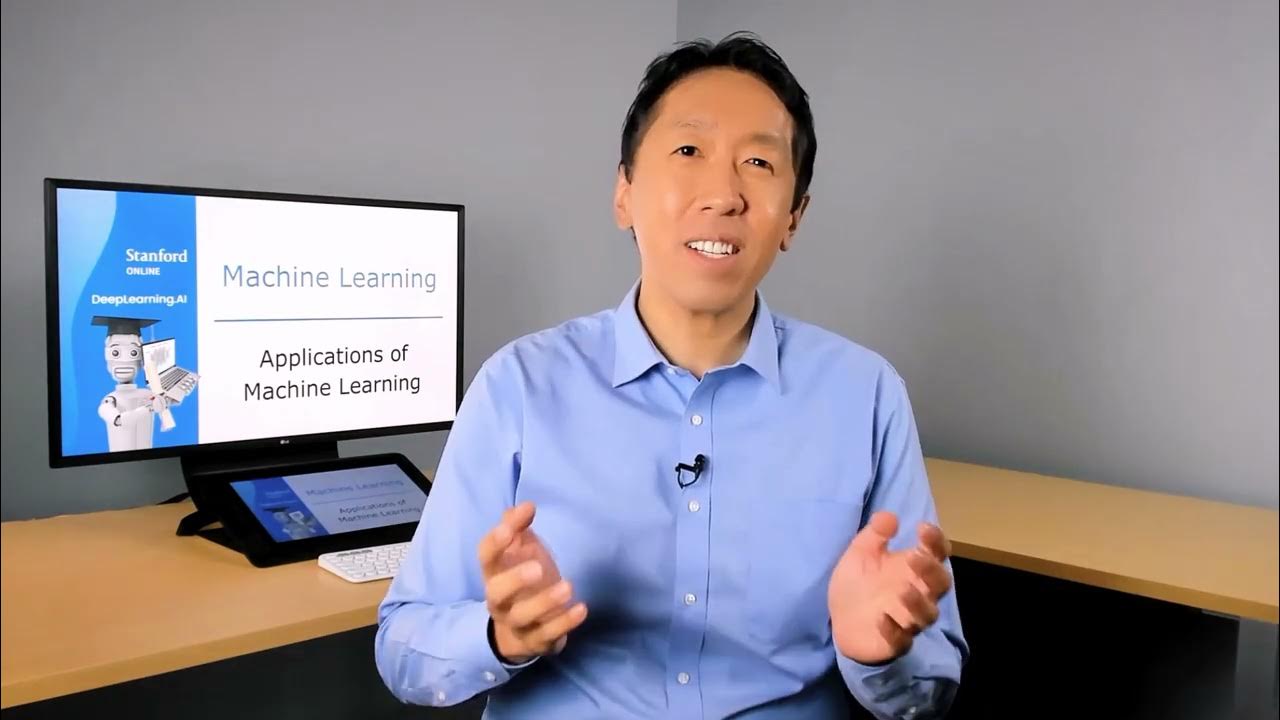Introduction to Artificial Intelligence - Course Introduction
Summary
TLDRIn this introductory course on Artificial Intelligence, instructor Eric Frick welcomes beginners and IT professionals to explore the fascinating world of AI. The course is designed for those with no prior experience, offering clear explanations without heavy technical jargon. Over eight modules, participants will learn about AI’s history, core technologies like machine learning and robotics, the ethical implications of AI, and its applications across industries. The course also highlights future trends and challenges in AI, equipping students with a solid foundation to understand this rapidly evolving field.
Takeaways
- 😀 Welcome to the 'Introduction to Artificial Intelligence' course, led by instructor Eric Frick.
- 😀 This course is designed for beginners with no prior AI experience, using simple language and clear explanations.
- 😀 The course will cover the foundational background and key developments in the field of AI.
- 😀 It is also suitable for seasoned IT professionals who haven't kept up with recent AI advancements.
- 😀 The course is divided into eight modules, each focusing on different aspects of AI and its applications.
- 😀 Module 1 will cover the basics, including the history and foundational concepts of AI.
- 😀 Modules 2 and 3 will explore major areas of AI, such as machine learning, vision systems, and robotics.
- 😀 Module 4 focuses on leading AI vendors, looking at the products and services they offer in the AI field.
- 😀 Module 5 will discuss real-world applications of AI, examining how AI is used across different industries.
- 😀 Module 6 will delve into ethical considerations surrounding AI, a critical and timely topic in the field.
- 😀 Module 7 will discuss future trends and challenges in AI, providing insight into where the field is headed.
- 😀 The final module, Module 8, will wrap up the course and provide additional resources for continued learning.
- 😀 Instructor Eric Frick encourages students to provide specific feedback to improve the course and to contact him at [email protected] for further questions or suggestions.
Q & A
What is the target audience for this Artificial Intelligence course?
-The course is designed for beginners, including those with no prior experience in AI. However, it is also suitable for seasoned IT professionals who may not have kept up with recent developments in AI.
How does the instructor plan to accommodate beginners in the course?
-The instructor assumes that students are complete beginners and avoids using technical jargon. If technical terms are used, they will be explained clearly to ensure students can follow along.
What is the main focus of this AI course?
-The course focuses on providing an introduction to AI, covering its history, major areas, ethical considerations, current applications, and future trends. It is designed to give students the foundational knowledge needed to understand AI's developments.
How many modules are there in this AI course, and what do they cover?
-The course consists of 8 modules. These include: an introduction to the course and AI history, an overview of AI systems, major vendors, real-world applications, ethical considerations, future trends, and a conclusion with additional resources.
What are some of the major areas of AI that the course will cover?
-The course will explore several key areas of AI, including machine learning, vision systems, robotics, and other important AI technologies.
What will students learn about AI vendors in the course?
-In Module 4, students will learn about the leading vendors in the AI industry, exploring the products and services these companies are offering to drive AI advancements.
What ethical considerations are addressed in the course?
-Module 6 focuses on ethical considerations in AI, discussing the potential ethical challenges and dilemmas that arise as AI technology is developed and implemented in various sectors.
What future trends and challenges in AI will the course explore?
-Module 7 will examine the future of AI, highlighting trends, innovations, and potential challenges that the industry may face as AI continues to evolve and expand.
How can students provide feedback on the course?
-Students are encouraged to leave a review and provide specific feedback to help improve the course. They can contact the instructor directly via email at [email protected].
Why does the instructor emphasize the importance of feedback?
-The instructor wants to ensure the course is as effective and engaging as possible. By gathering feedback, they can make improvements and tailor the content to meet the needs of the students.
Outlines

Esta sección está disponible solo para usuarios con suscripción. Por favor, mejora tu plan para acceder a esta parte.
Mejorar ahoraMindmap

Esta sección está disponible solo para usuarios con suscripción. Por favor, mejora tu plan para acceder a esta parte.
Mejorar ahoraKeywords

Esta sección está disponible solo para usuarios con suscripción. Por favor, mejora tu plan para acceder a esta parte.
Mejorar ahoraHighlights

Esta sección está disponible solo para usuarios con suscripción. Por favor, mejora tu plan para acceder a esta parte.
Mejorar ahoraTranscripts

Esta sección está disponible solo para usuarios con suscripción. Por favor, mejora tu plan para acceder a esta parte.
Mejorar ahoraVer Más Videos Relacionados

Apresentação do Curso e Instrutora

#2 Machine Learning Specialization [Course 1, Week 1, Lesson 1]

. [Inteligência Artificial] Módulo 1 - Introdução à Inteligência Artificial aula 1

A Brief History of AI

U7-01 V2 Lektionsübersicht V2

APA ITU ARTIFICIAL INTELLIGENCE? AI 101: PANDUAN LENGKAP AI UNTUK PEMULA DARI NOL SAMPAI PAHAM!
5.0 / 5 (0 votes)
